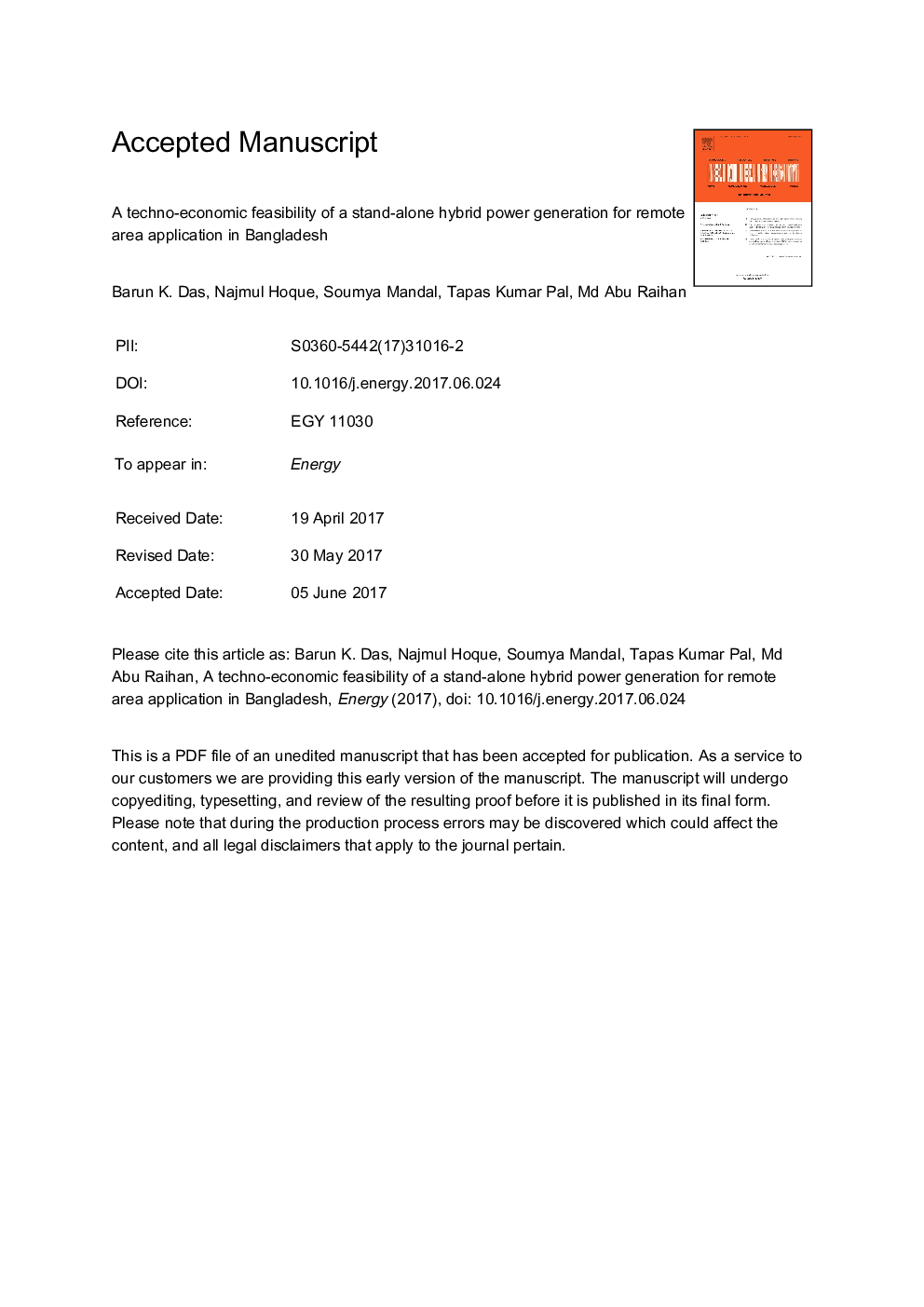| کد مقاله | کد نشریه | سال انتشار | مقاله انگلیسی | نسخه تمام متن |
|---|---|---|---|---|
| 5475874 | 1521417 | 2017 | 37 صفحه PDF | دانلود رایگان |
عنوان انگلیسی مقاله ISI
A techno-economic feasibility of a stand-alone hybrid power generation for remote area application in Bangladesh
ترجمه فارسی عنوان
امکان سنجی تکنولوژیکی اقتصادی تولید برق ترکیبی مستقل برای برنامه های کاربردی از راه دور در بنگلادش
دانلود مقاله + سفارش ترجمه
دانلود مقاله ISI انگلیسی
رایگان برای ایرانیان
کلمات کلیدی
موضوعات مرتبط
مهندسی و علوم پایه
مهندسی انرژی
انرژی (عمومی)
چکیده انگلیسی
A techno-economic feasibility of a stand-alone hybrid power generation for a remote community in Bangladesh is carried out in this study. The proposed system integrates a combination of biogas generator, PV modules, diesel generators, wind turbines, and lead acid battery to meet the electric load requirements using Hybrid Optimization Model for Electric Renewables (HOMER) software tool. The designated system would satisfy the energy requirements of 248Â kWh/day primary load with 44.41Â kW peak load. The optimized hybrid system consists of a biogas generator (9Â kW), PV modules (10Â kW), 2 diesel generators (10Â kW each), 72 batteries (390Ah each), and 15Â kW inverters. This configuration gives the COE of $0.28/kWh and total Net Present Cost (NPC) of $612280 with a renewable fraction of 60%. Additionally, the system has potential benefit to reduce CO2 emission by nearly 59.6% per year as compared to a diesel-based system and by 40.5% compared to the grid electricity. Furthermore, the results also indicate that it is fairly impossible to reach grid electricity price parity even with full government support for the project capital cost. However, the proposed system is found as an economical option than supplying electricity to the remote community with solar home systems (SHSs).
ناشر
Database: Elsevier - ScienceDirect (ساینس دایرکت)
Journal: Energy - Volume 134, 1 September 2017, Pages 775-788
Journal: Energy - Volume 134, 1 September 2017, Pages 775-788
نویسندگان
Barun K. Das, Najmul Hoque, Soumya Mandal, Tapas Kumar Pal, Md Abu Raihan,
